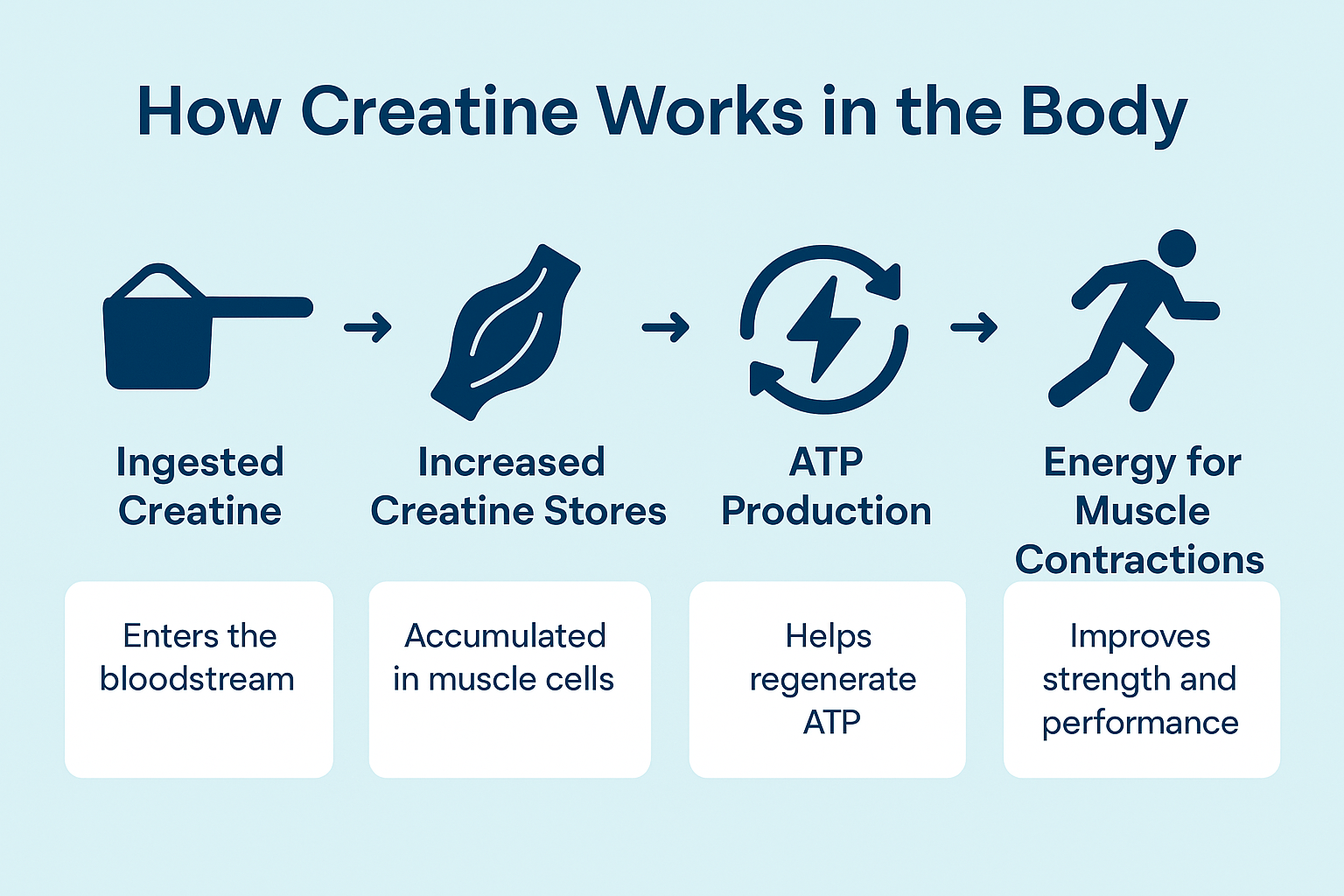The Ultimate Guide to Boosting Your Metabolism Naturally
Understanding Metabolism and Its Vital Role
Metabolism is the engine that keeps your body running, converting the food you eat into energy. It plays a crucial role in maintaining essential bodily functions, such as breathing, circulation, and cell repair, even when you’re at rest. The rate at which your body burns calories, known as your metabolic rate, directly influences weight management, energy levels, and overall health.
Key Functions of Metabolism
Metabolism is a complex process that involves several key functions:

- Converting food into energy – Your body breaks down carbohydrates, fats, and proteins to generate energy.
- Regulating hormones – Metabolism is closely linked to hormonal balance, affecting weight, appetite, and overall well-being.
- Supporting cell function and repair – Your metabolism fuels cellular processes, helping your body recover from workouts and injuries.
- Managing body temperature – It helps regulate heat production to maintain an optimal body temperature.
- Eliminating waste products – Your metabolic system processes and removes toxins through sweat, urine, and respiration.
Key Aspects of Metabolism
To understand how to optimize your metabolism, it’s important to know its two main components:
- Basal Metabolic Rate (BMR): The number of calories your body needs to function while at rest. It accounts for 60–70% of total daily energy expenditure.
- Thermic Effect of Food (TEF): The energy required to digest, absorb, and process food. Different foods have varying effects on metabolism, with protein requiring the most energy to process.
- Physical Activity: Exercise and movement significantly influence metabolism by increasing calorie burn and improving metabolic efficiency.
Factors That Affect Metabolism
Several factors impact your metabolic rate, some of which you can control and others that you cannot:
- Age: Metabolism naturally slows with age due to muscle loss and hormonal changes.
- Gender: Men typically have a higher metabolic rate than women because they have more muscle mass.
- Genetics: Your genetic makeup influences your metabolism, though lifestyle choices can override genetic predispositions.
- Diet: The types of food you eat, meal timing, and portion sizes affect metabolic function.
- Activity Level: Regular exercise, especially strength training, helps increase metabolism by building lean muscle.
- Muscle Mass: More muscle means a higher resting metabolic rate, as muscle tissue burns more calories than fat.
- Hormones: Thyroid function, insulin levels, and other hormonal balances play a significant role in metabolic efficiency.
- Hydration: Dehydration can slow metabolism, as water is essential for processing calories efficiently.
- Sleep Quality: Poor sleep disrupts metabolic processes, leading to weight gain and sluggish energy levels.
- Stress Levels: High stress can lead to cortisol imbalances, promoting fat storage and slowing metabolism.
Why Metabolism is Important
A well-functioning metabolism is essential for maintaining a healthy weight, feeling energized, and preventing chronic diseases. A slow metabolism can lead to weight gain, fatigue, and difficulty losing fat, while an optimized metabolism supports long-term health and performance.
12 Natural Ways to Boost Your Metabolism
If you want to enhance your metabolic rate and burn more calories, consider implementing these proven strategies to reach your weight loss goals:
1. Eat Enough Calories

Many people believe that drastically cutting calories will speed up weight loss, but this actually backfires. When you eat too little, your body enters starvation mode, slowing down your metabolism to conserve energy. Instead, focus on consuming a balanced diet with enough calories to support your activity level and BMR. Eating too few calories can also lead to muscle loss, which further reduces metabolic efficiency.
2. Increase Protein Intake

Protein has a high thermic effect, meaning your body burns more calories digesting it compared to fats and carbs. Additionally, protein helps preserve lean muscle mass, which keeps your metabolism high.
3. Strength Training

Lifting weights like the ones here from Amazon and performing resistance exercises help build muscle, which burns more calories at rest. The more muscle you have, the higher your resting metabolic rate.
4. Get Enough Sleep

Poor sleep can disrupt hormone levels, leading to a slower metabolism and increased fat storage. Aim for 7–9 hours of quality sleep per night to keep your metabolism functioning efficiently.
5. Stay Hydrated

Water is essential for metabolic processes. Drinking enough water helps your body burn calories more efficiently and prevents metabolic slowdown due to dehydration.
6. Drink Green Tea or Coffee

Both green tea and coffee contain caffeine and antioxidants that can temporarily boost metabolism and fat burning.
7. Eat Small, Frequent Meals

Consuming smaller meals throughout the day keeps your metabolism active and prevents energy crashes that slow calorie burn.
8. Incorporate High-Intensity Interval Training (HIIT)

HIIT workouts involve short bursts of intense exercise followed by brief recovery periods. This method significantly increases calorie burn, even after the workout is finished.
9. Reduce Processed Foods and Sugary Drinks

Highly processed foods and sugary beverages can cause insulin spikes and fat storage. Focus on whole, nutrient-dense foods to keep your metabolism running smoothly.
10. Manage Stress Levels

Chronic stress increases cortisol levels, which can slow metabolism and lead to weight gain. Activities like meditation, yoga, and deep breathing can help regulate stress.
11. Get Enough Healthy Fats

Healthy fats, such as those found in avocados, nuts, and olive oil, support hormonal balance and metabolic function.
12. Move More Throughout the Day

Beyond formal exercise, staying active by walking, standing, or stretching frequently throughout the day helps keep your metabolism elevated.
The Role of Thyroid Health in Metabolism
Your thyroid is a small, butterfly-shaped gland in your neck that plays a major role in regulating metabolism. It produces hormones like thyroxine (T4) and triiodothyronine (T3), which control how efficiently your body burns calories. If your thyroid is underactive (hypothyroidism), it can slow down your metabolism, leading to weight gain, fatigue, and difficulty losing fat. Conversely, an overactive thyroid (hyperthyroidism) can speed up metabolism, leading to rapid weight loss, increased heart rate, and nervousness.
How to Improve Thyroid Health
If you suspect thyroid issues, supporting thyroid function naturally can help improve metabolism:
- Eat Iodine-Rich Foods: Iodine is essential for thyroid hormone production. Include seaweed, fish, dairy, and iodized salt in your diet.
- Get Enough Selenium and Zinc: These minerals help convert T4 into the active T3 hormone. Foods like Brazil nuts, eggs, and shellfish are great sources.
- Reduce Processed Foods: Avoiding highly processed foods can help regulate hormones and support thyroid health.
- Manage Stress: Chronic stress can disrupt thyroid function, so practicing relaxation techniques like meditation and deep breathing is beneficial.
- Exercise Regularly: Moderate exercise helps regulate hormone levels and supports overall thyroid health.
- Monitor Your Symptoms: If you experience persistent fatigue, unexplained weight changes, hair thinning, or mood swings, your thyroid may need attention.
When to See a Medical Professional
If you suspect you have a thyroid issue, it’s important to consult a doctor for proper diagnosis and treatment. Blood tests can measure thyroid hormone levels and identify any imbalances. In cases of hypothyroidism, medication may be required to regulate hormone levels. Likewise, hyperthyroidism may need medical management to prevent complications. Seeking professional help ensures that you get the right treatment to maintain a healthy metabolism.
Conclusion
Optimizing your metabolism is key to sustainable weight management, higher energy levels, and overall well-being. By making simple yet effective lifestyle changes—such as eating enough protein, staying active, getting quality sleep, and managing stress—you can naturally boost your metabolic rate and enhance your health. Start incorporating these habits today, and watch your metabolism work in your favor!



4 thoughts on ““12 Proven Ways to Boost Your Metabolism Naturally (Backed by Science)””